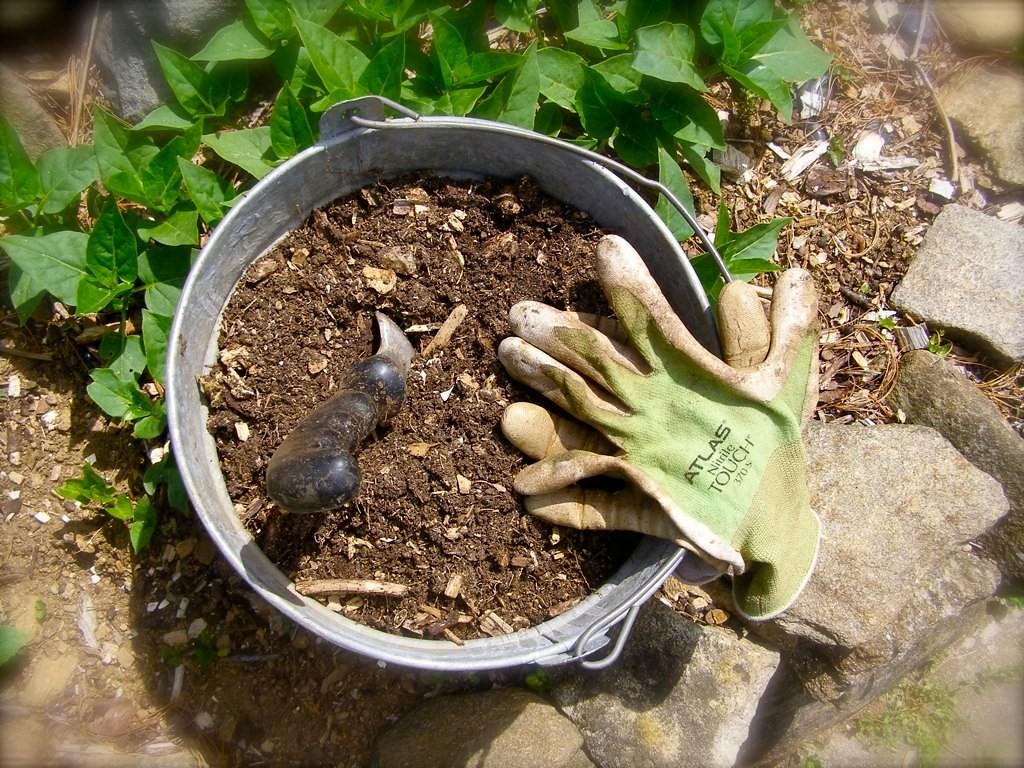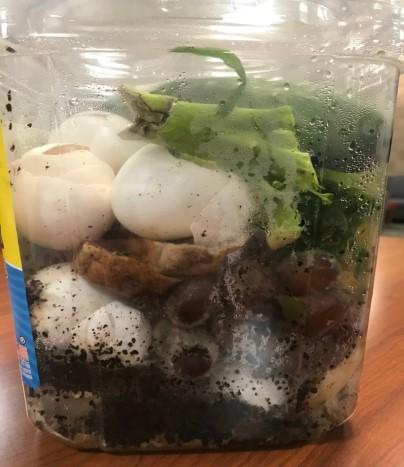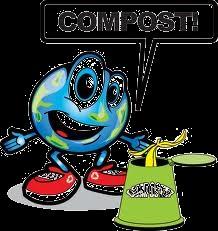
3 minute read
Zero Waste: Composting
By Rebecca McGrath

Composting is one part of zero waste and should be used as a tool when trying to go zero waste. On the hierarchy of waste, compost and recycling is the fourth rank down. Composting needs three ingredients: Browns, greens, and water. Browns are twigs and dead leaves. Greens are grass clippings, vegetable or fruit waste, and coffee grounds. The amount of water is important for having the materials break down. The EPA has a list of safe foods that can be put into compost. Meat, dairy, pet wastes, and pesticide treated yard wastes cannot be put into compost because it is unsafe.
The EPA has a list of approved compostable items:
Fruits and vegetables Eggshells Coffee grounds and filters Tea bags Nut shells Paper Yard trimmings Grass clippings Houseplants Hay and straw
Shredded newspaper Cardboard
Leaves Sawdust Cotton and Wool Rags Wood chips Dryer and vacuum cleaner lint Hair and fur Fireplace ashes
How to start your own compost (in-dorm or off campus)
1. Start by buying an airtight container 2. Start collecting approved waste materials into your bin. A tip is to keep your compost

container in your freezer. This helps reduce bacteria and minimizes the smell. 3. Once your container is full, take it to Compost Clubs bin at the
Hillel Center (on college ave) from 10-11am on Sundays! If you can’t make it, then you can drop off your compost by the EENR
Building on Cook/Douglass.

How did compost club start?
Compost Club was started in 2016 by Dorothy Lee, who has since graduated. Colin mentioned that Compost Club has guest lecturers, including Landscape Architecture PhD candidates that spoke about farmers rights. The club also has activities like raising beans in K-cups, and plant propagation. The club also has field trips to community composters as well.
Compost Club accepts hot compost. The compost pile can actually get up to 120 degrees (even in the winter), which is a healthy temperature for compost. Typically, Compost Club takes fruits, veggies, egg shells, rice, and bread. They also have an indoor worm bin with 500 worms! Someone from the county came down to teach them about worm bins and then gave them one.
10-11am on Sundays at the Hillel Center on College Ave. Stop by the tree across the street to say hi to Colin! They typically get up to 60lbs a week!
Colin said he would like to see an increase in participation in the Rutgers Community. But before that happens, they need to build more bins. They currently building more bins to accommodate for more compost, and have them on different campuses. They are also interested in collaborating with other organizations.


Colin said people being aware of food waste. People still sometimes give foods that are still good. He would also like to see more participation for Rutgers dining halls.
9:15 every other Tuesday in the Merelle V. Adams till 10:15! Check out their Facebook: RUCOMPOST
Instagram: @rucompost
Which is better, hot or cold compost?
Colin believes that the process are different degradation processes. Cold is more yard waste, and hot is food waste.
Yes, and some of the professors have used their bins for classroom demonstrations.

Works Cited
“Composting At Home.” EPA, Environmental Protection Agency, 13 Nov. 2019, https:// www.epa.gov/recycle/ composting-home.













